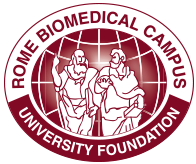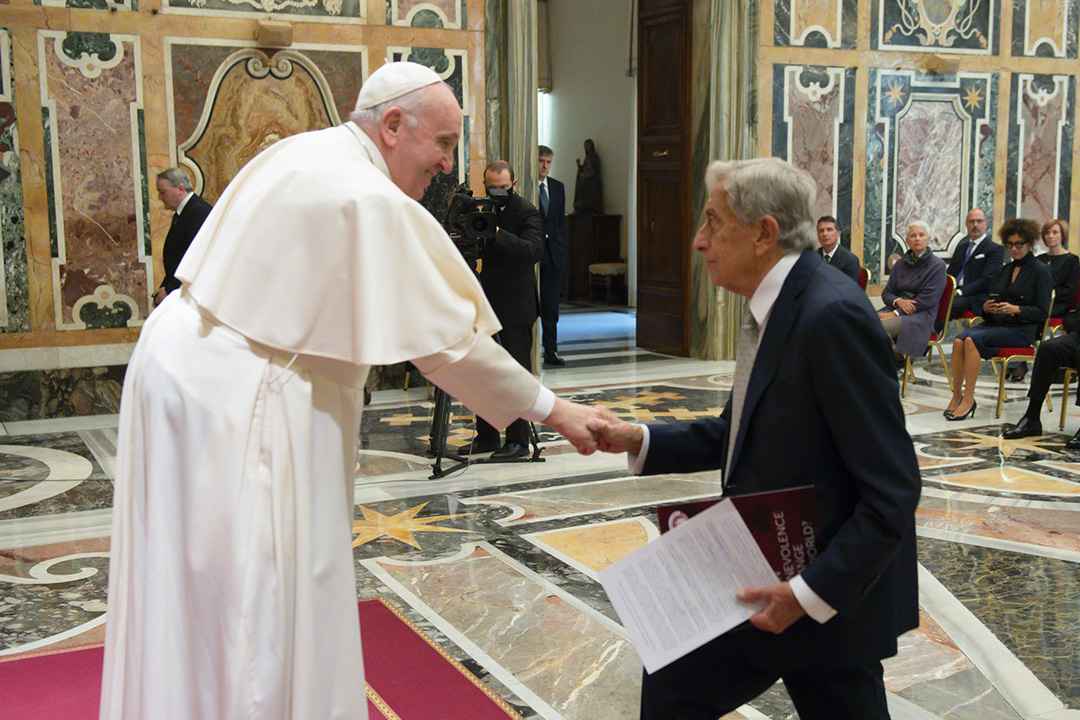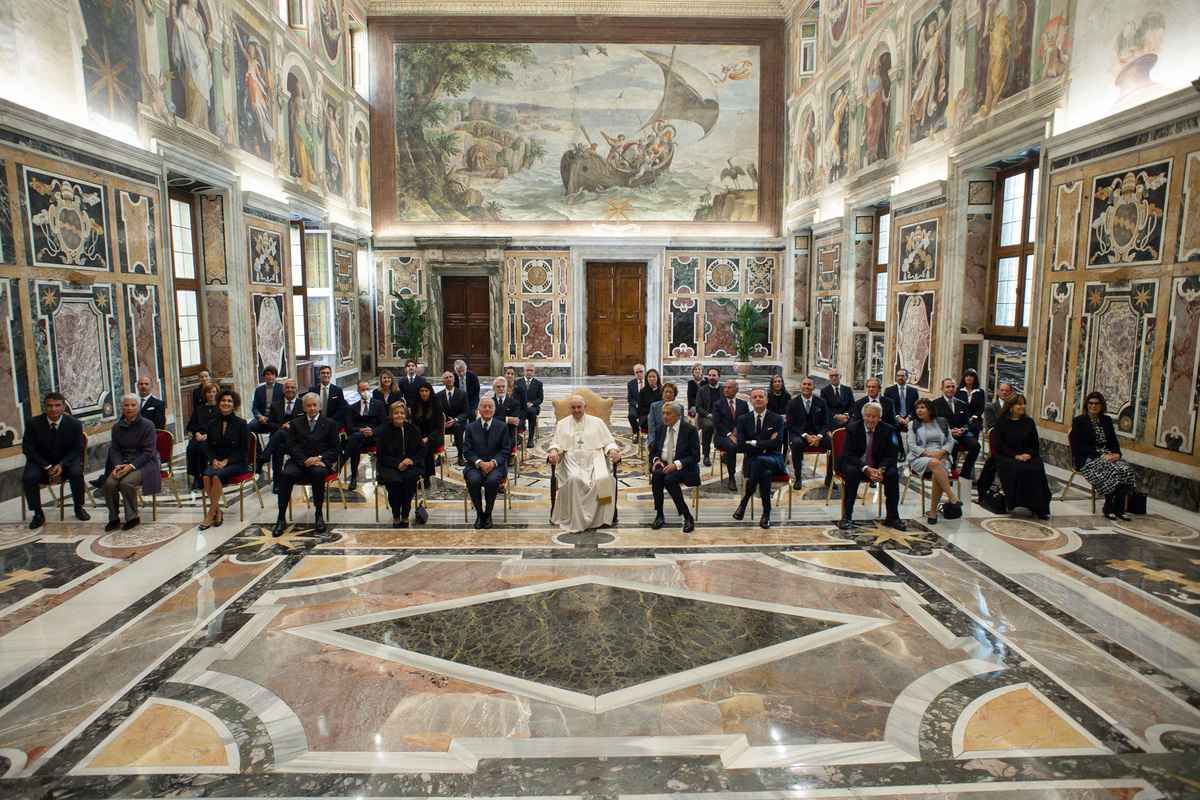“The recent meeting with the Holy Father was truly a joy for me, for the Biomedical University Foundation, for the leaders of the Campus and for all of us.
An opportunity to directly renew our commitment to His Holiness and to illustrate our Foundation, the University and the Hospital. In the Pope’s own words “the human development of research” and our unity generate great things.
I would like to share with you my joy and a real hope of having him on the Campus soon: the formal invitation process has started!”
Paolo Arullani
We place individual care at the center of our activities to testify that no life is unworthy and that the patients’ needs must always be prioritized, in order to transform medicine into an “art”: “An art that combines professional and scientific knowledge with compassion and empathy “. Pope Francis encouraged the work of the Foundation of the Campus Bio-Medico University of Rome, a non-profit organization established in 2015 and promoted by Opus Dei with the aim of supporting scientific research and the activities of the University and the Hospital.
Healthcare and research “with love”
Our Covid Center and the Emergency Department stood out during the peak months of the pandemic for the service carried out, which continued to go hand in hand with our ongoing commitments for the elderly, for those affected by rare diseases and for patients in our recently built Hospice. Pope Francis said he is aware of all our work and is delighted to receive leaders and members of the Foundation “on the day we celebrate St. Luke, whom the Apostle Paul calls the dear doctor”. At the same time, the Pope declared that he understands the current difficulties entailed in “carrying out work in the field of healthcare, especially when, as it is the case in your Hospital, there is a double aim of assistance and research for providing the sick with the most suitable therapies, and above all it is done with love for each individual”.
Connection and collaboration are vital
Anyone in the healthcare sector should first of all do their work with love, according to the Pope. Love that develops and becomes real only by working “together”: an apparently “simple” word that in reality is “difficult to bring alive”, especially during the current global pandemic. However, the pandemic itself showed “the importance of connecting, collaborating, and tackling common problems together”.
Building a solid collaboration network has been and will increasingly become more important in healthcare, Catholic in particular. It is no longer time to work in isolation. Charity means giving: knowledge must be shared, skills must be shared, science must be shared.
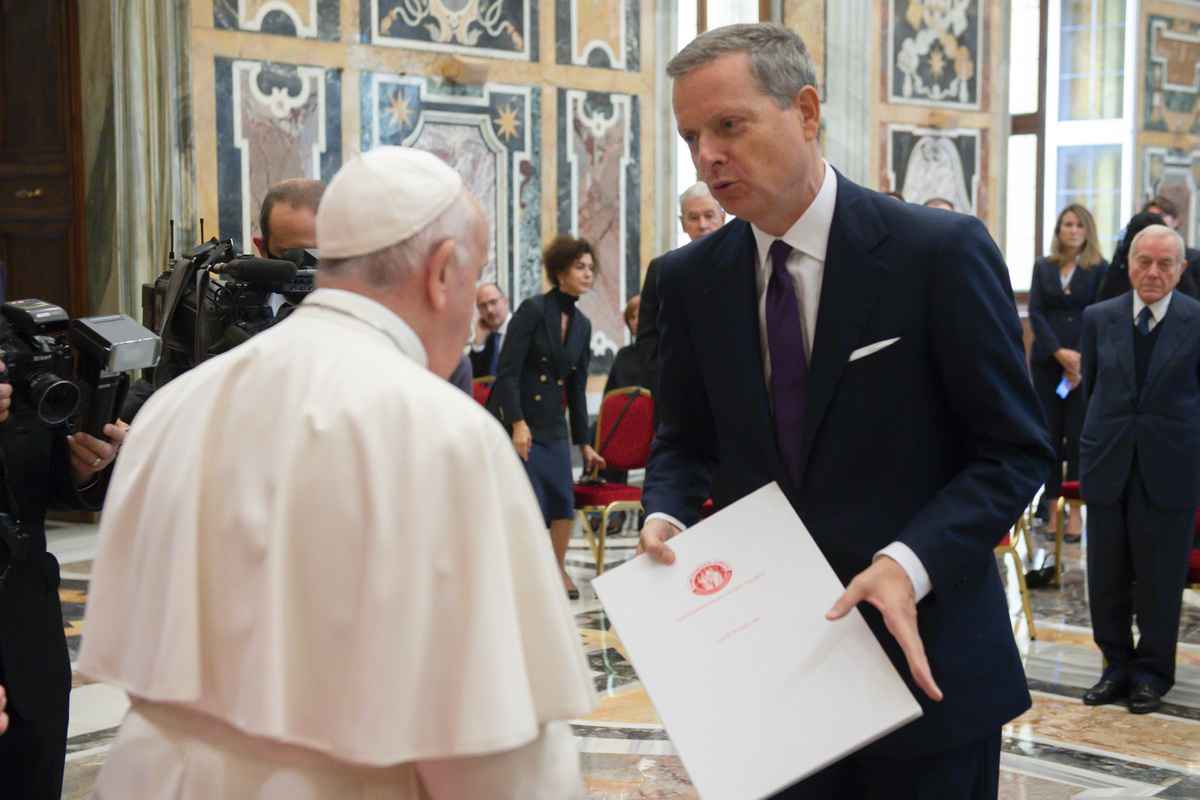
Help developing countries with Covid-19 vaccinations
“Scientific products, if offered alone, remain patches able to stop the disease but not to cure deeply”, the Pope warns.
This is the case, for example, of vaccines: it is urgent to help developing countries, but we must do it with long-term plans, and we must not be solely motivated by ensuring a rapid return to safety in western countries. The distribution process must be carried out with dignity, the vaccines are not merciful alms.
Patients first, illnesses second
Our operating principle is always that of “putting patients before the disease”, “essential in every field of medicine” and “fundamental for a truly complete and human healthcare”. This human-centric approach at the core of our commitment in healthcare, but also in teaching and research, because this guiding principle “helps to strengthen a unitary, synergic vision”, said Pope Francis.
A vision where ideas, techniques and projects are not central, but humans are: patients always come first and must be treated by taking into consideration their personal history and their experiences, aiming to establishing friendly and truly healing relationships.
But if putting individual care at the center is fundamental, we must not forget “the importance of science and research”. “Treatment without science – Francis emphasizes – is useless, just as science without treatment is sterile. The two things go together, and only together do they make medicine an art”.
All lives are worth living
The Pope’s indication becomes an appeal, addressed not only to Campus Bio-Medico University, but to Catholic healthcare in general.
“Our actions must show that there are no unworthy lives or lives to be discarded because they do not meet the economic criteria based on making profit.”
“We are experiencing a true culture of waste and this is becoming our cultural environment: we must react to this culture of waste”, said Pope Francis not following a script. “Every healthcare facility – he remarked – in particular of Christian inspiration, should be the place where idividual care is practiced and of which one can say: ‘here you can not only see doctors and patients, but people who welcome and help each other: here we apply the human dignity therapy’. This must never be negotiated; we must always defend this principle”.
Patients’ needs before profit
The Pope invoked “a human development of research”. “Unfortunately – he said – often only profits are pursued, forgetting that before earning opportunities there are patients’ needs. These needs evolve continuously and we must prepare to face always new pathologies and discomforts. Among others, I am thinking mainly of healthcare needs many elderly people and the needs of those suffering from many rare diseases, which may even be unknown due to lack of proper research…”.
For this specific reason, the Pope praised our institution’s commitment which, in addition to promoting research, helps “those who do not have the economic means to sustain university fees” and faces “significant costs that the ordinary budget cannot bear”: “All this it is excellent work, as it allows to face greater urgencies with an ever increasing open reach”.
The growth of healthcare culture
Pope Frances exhorted us to “Understand different contexts and investing in the growth of healthcare culture” to which he added: “It is not easy”, but it is a “real mission” that belongs to Catholic healthcare, called to become increasingly “more active, as an expression of an open and outgoing Church”.
Arullani: unity and spirit of service
At the beginning of the audience, the president of the Campus Bio Medico Foundation, Paolo Arullani, in his greeting to the Pope, recalled “the unity, the family atmosphere and the spirit of service” that characterize the University and the Hospital, where “research, teaching and assistance complement and strengthen each other “. In particular, “attention to patients is a characterizing element”, said Arullani, “the person comes even before the disease”. The president also recalled how the first donation came from the iconic Italian actor Alberto Sordi and was “meant to support elderly healthcare with the aim of welcoming them among young university students”. A commitment that still continues on our Campus, together with the commitment carried our in our Hospice where we gently accompany people until the last moment of their lives, with a “special attention to those who most need close attention”: “It is very powerful – said Paolo Arullani – to see gratitude in the eyes of patients and family members in such difficult moments “.
Foto © Vatican Media
“The recent meeting with the Holy Father was truly a joy for me, for the Biomedical University Foundation, for the leaders of the Campus and for all of us.
An opportunity to directly renew our commitment to His Holiness and to illustrate our Foundation, the University and the Hospital. In the Pope’s own words “the human development of research” and our unity generate great things.
I would like to share with you my joy and a real hope of having him on the Campus soon: the formal invitation process has started!”
paolo arullani
President of Biomedical University Foundation
We place individual care at the center of our activities to testify that no life is unworthy and that the patients’ needs must always be prioritized, in order to transform medicine into an “art”: “An art that combines professional and scientific knowledge with compassion and empathy “. Pope Francis encouraged the work of the Foundation of the Campus Bio-Medico University of Rome, a non-profit organization established in 2015 and promoted by Opus Dei with the aim of supporting scientific research and the activities of the University and the Hospital.
Healthcare and research “with love”
Our Covid Center and the Emergency Department stood out during the peak months of the pandemic for the service carried out, which continued to go hand in hand with our ongoing commitments for the elderly, for those affected by rare diseases and for patients in our recently built Hospice. Pope Francis said he is aware of all our work and is delighted to receive leaders and members of the Foundation “on the day we celebrate St. Luke, whom the Apostle Paul calls the dear doctor”. At the same time, the Pope declared that he understands the current difficulties entailed in “carrying out work in the field of healthcare, especially when, as it is the case in your Hospital, there is a double aim of assistance and research for providing the sick with the most suitable therapies, and above all it is done with love for each individual”.
Connection and collaboration are vital
Anyone in the healthcare sector should first of all do their work with love, according to the Pope. Love that develops and becomes real only by working “together”: an apparently “simple” word that in reality is “difficult to bring alive”, especially during the current global pandemic. However, the pandemic itself showed “the importance of connecting, collaborating, and tackling common problems together”.
Building a solid collaboration network has been and will increasingly become more important in healthcare, Catholic in particular. It is no longer time to work in isolation. Charity means giving: knowledge must be shared, skills must be shared, science must be shared.

Help developing countries with Covid-19 vaccinations
“Scientific products, if offered alone, remain patches able to stop the disease but not to cure deeply”, the Pope warns.
This is the case, for example, of vaccines: it is urgent to help developing countries, but we must do it with long-term plans, and we must not be solely motivated by ensuring a rapid return to safety in western countries. The distribution process must be carried out with dignity, the vaccines are not merciful alms.
Patients first, illnesses second
Our operating principle is always that of “putting patients before the disease”, “essential in every field of medicine” and “fundamental for a truly complete and human healthcare”. This human-centric approach at the core of our commitment in healthcare, but also in teaching and research, because this guiding principle “helps to strengthen a unitary, synergic vision”, said Pope Francis.
A vision where ideas, techniques and projects are not central, but humans are: patients always come first and must be treated by taking into consideration their personal history and their experiences, aiming to establishing friendly and truly healing relationships.
But if putting individual care at the center is fundamental, we must not forget “the importance of science and research”. “Treatment without science – Francis emphasizes – is useless, just as science without treatment is sterile. The two things go together, and only together do they make medicine an art”.
All lives are worth living
The Pope’s indication becomes an appeal, addressed not only to Campus Bio-Medico University, but to Catholic healthcare in general.
“Our actions must show that there are no unworthy lives or lives to be discarded because they do not meet the economic criteria based on making profit.”
“We are experiencing a true culture of waste and this is becoming our cultural environment: we must react to this culture of waste”, said Pope Francis not following a script. “Every healthcare facility – he remarked – in particular of Christian inspiration, should be the place where idividual care is practiced and of which one can say: ‘here you can not only see doctors and patients, but people who welcome and help each other: here we apply the human dignity therapy’. This must never be negotiated; we must always defend this principle”.
Patients’ needs before profit
The Pope invoked “a human development of research”. “Unfortunately – he said – often only profits are pursued, forgetting that before earning opportunities there are patients’ needs. These needs evolve continuously and we must prepare to face always new pathologies and discomforts. Among others, I am thinking mainly of healthcare needs many elderly people and the needs of those suffering from many rare diseases, which may even be unknown due to lack of proper research…”.
For this specific reason, the Pope praised our institution’s commitment which, in addition to promoting research, helps “those who do not have the economic means to sustain university fees” and faces “significant costs that the ordinary budget cannot bear”: “All this it is excellent work, as it allows to face greater urgencies with an ever increasing open reach”.
The growth of healthcare culture
Pope Frances exhorted us to “Understand different contexts and investing in the growth of healthcare culture” to which he added: “It is not easy”, but it is a “real mission” that belongs to Catholic healthcare, called to become increasingly “more active, as an expression of an open and outgoing Church”.
Arullani: unity and spirit of service
At the beginning of the audience, the president of the Campus Bio Medico Foundation, Paolo Arullani, in his greeting to the Pope, recalled “the unity, the family atmosphere and the spirit of service” that characterize the University and the Hospital, where “research, teaching and assistance complement and strengthen each other “. In particular, “attention to patients is a characterizing element”, said Arullani, “the person comes even before the disease”. The president also recalled how the first donation came from the iconic Italian actor Alberto Sordi and was “meant to support elderly healthcare with the aim of welcoming them among young university students”. A commitment that still continues on our Campus, together with the commitment carried our in our Hospice where we gently accompany people until the last moment of their lives, with a “special attention to those who most need close attention”: “It is very powerful – said Paolo Arullani – to see gratitude in the eyes of patients and family members in such difficult moments “.
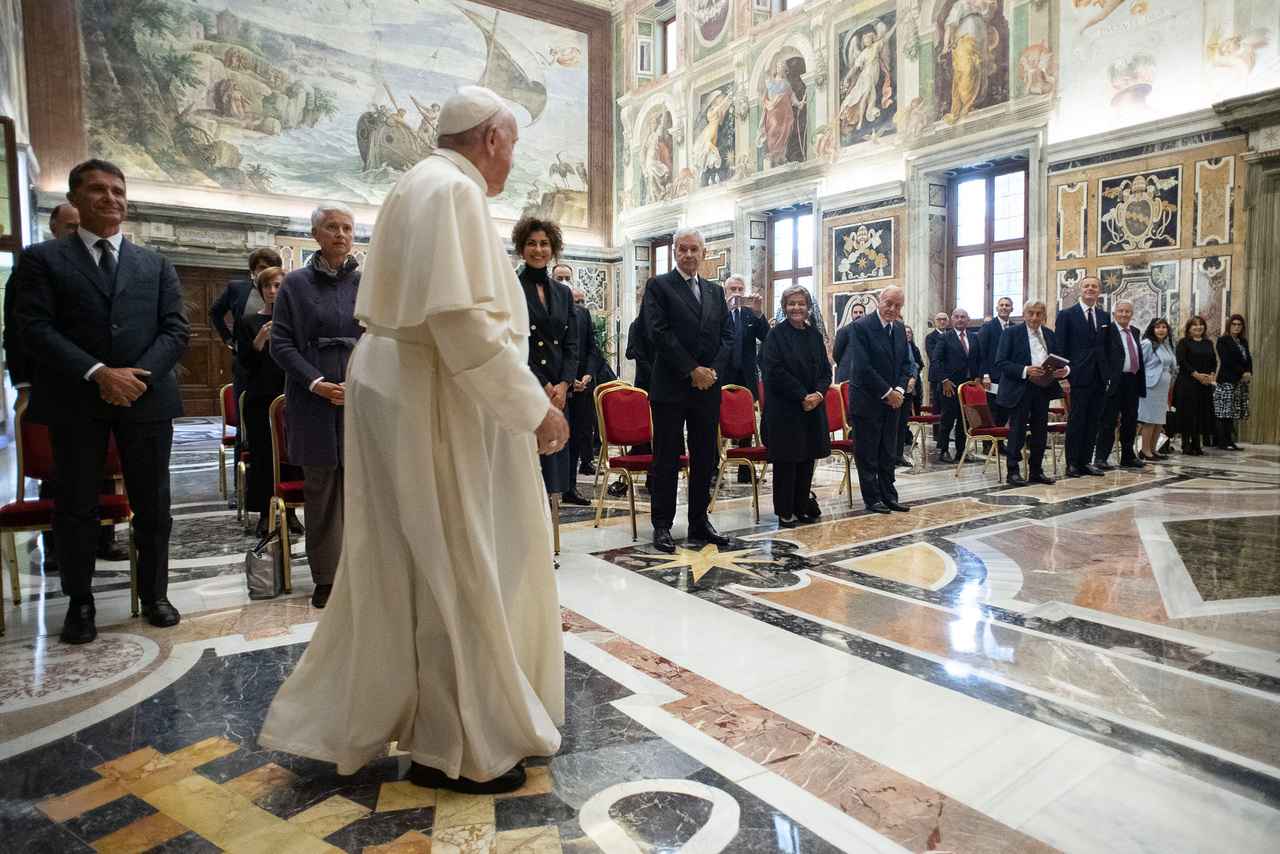
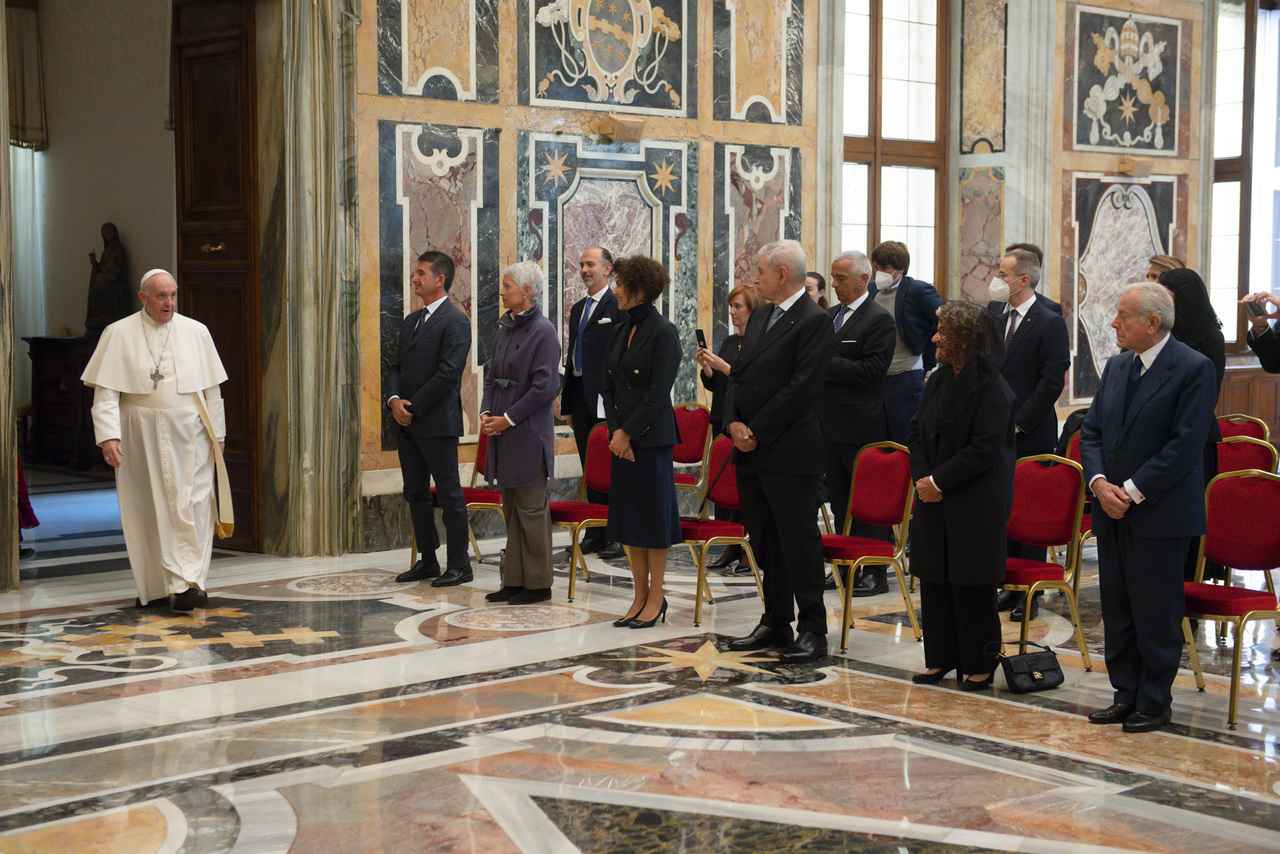
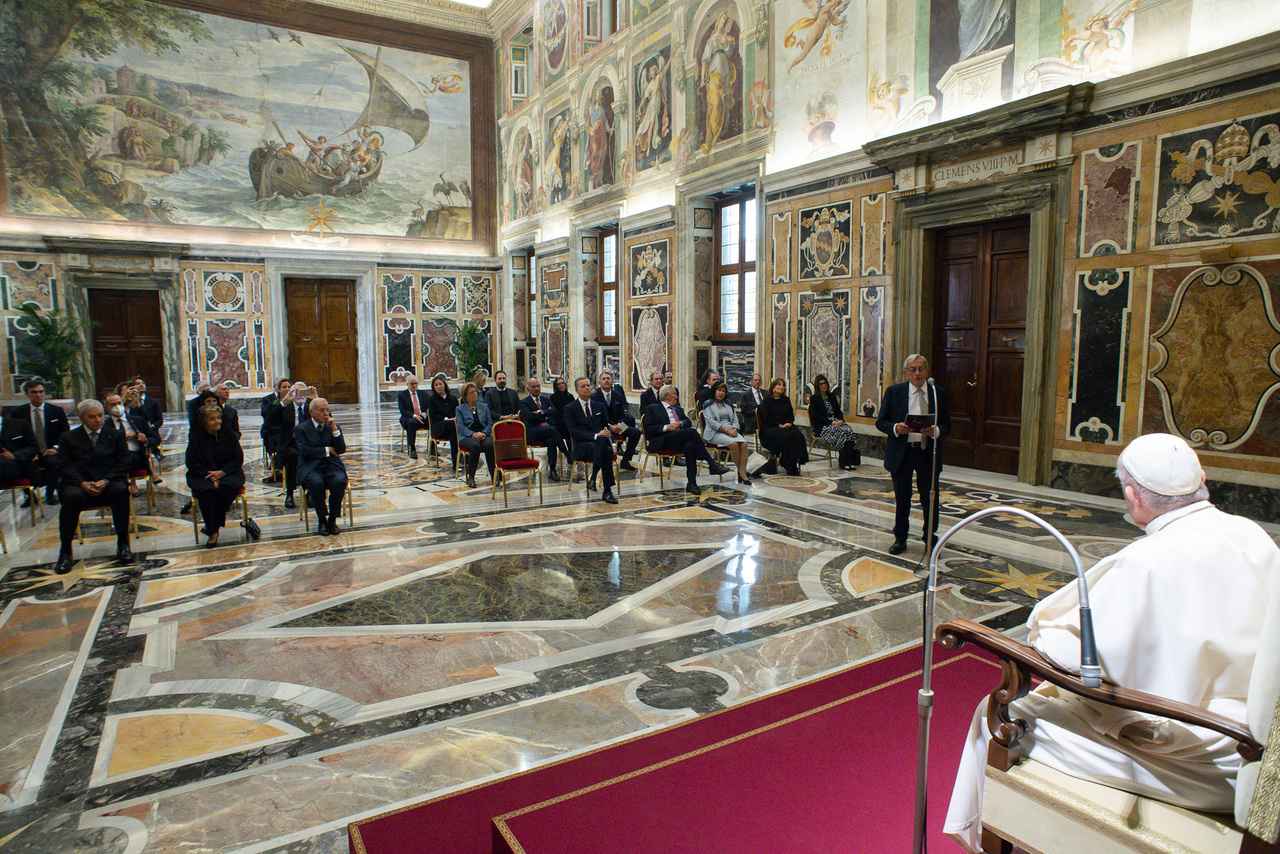
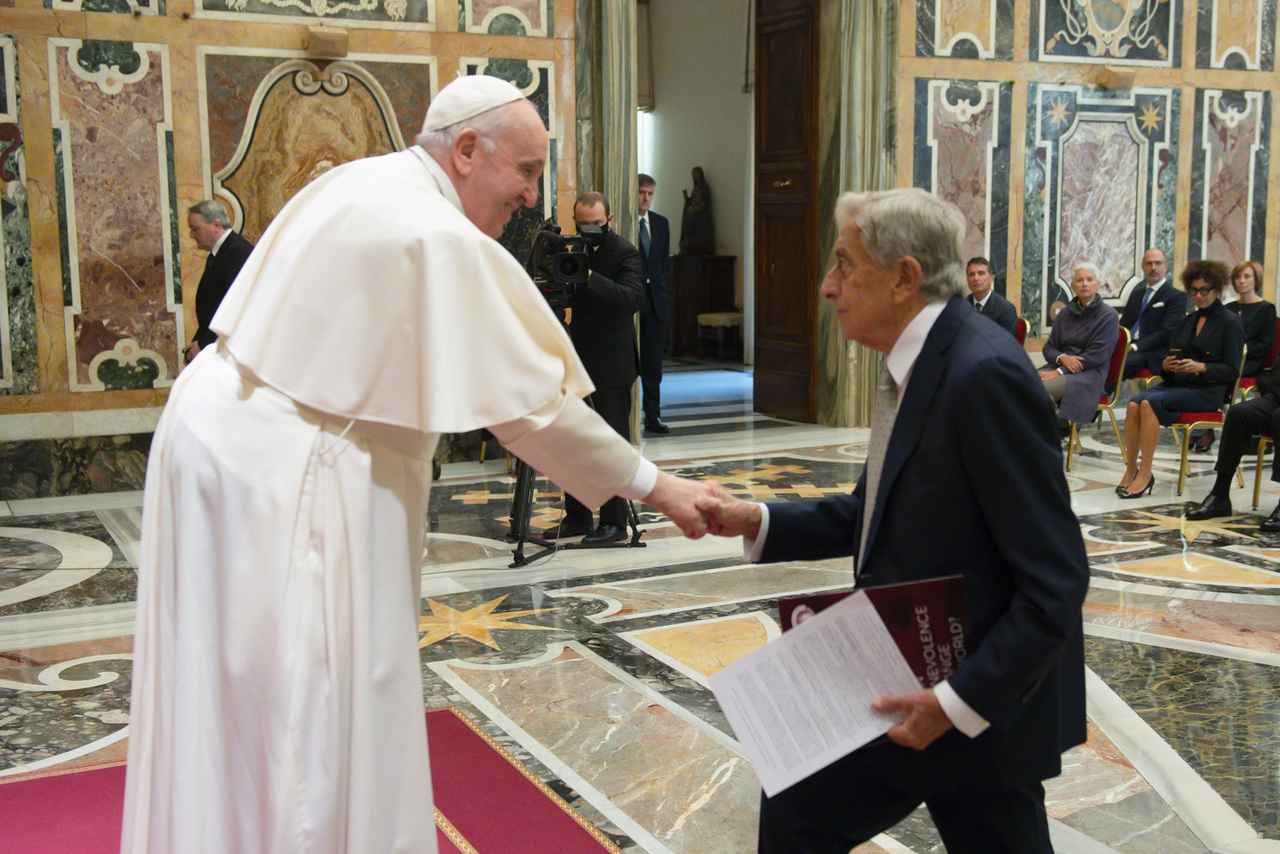
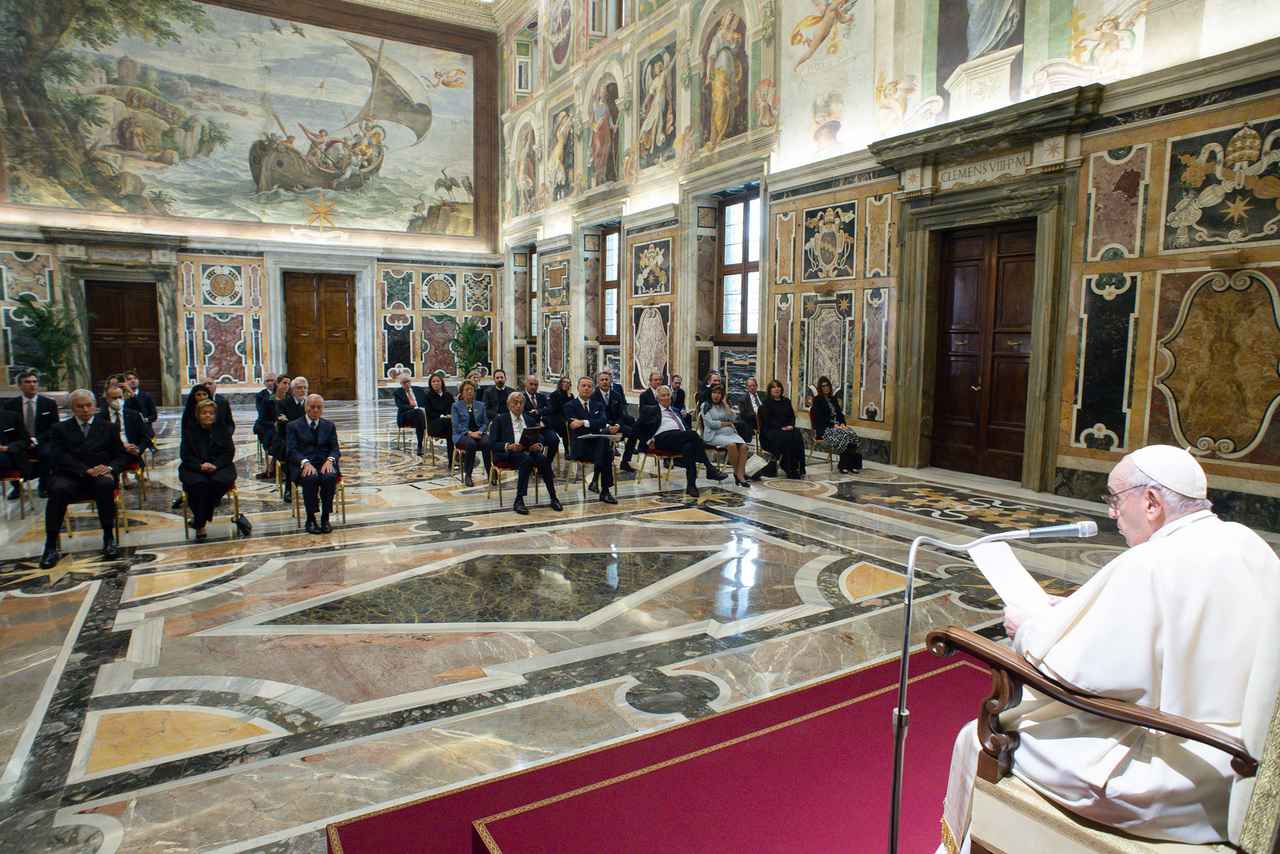
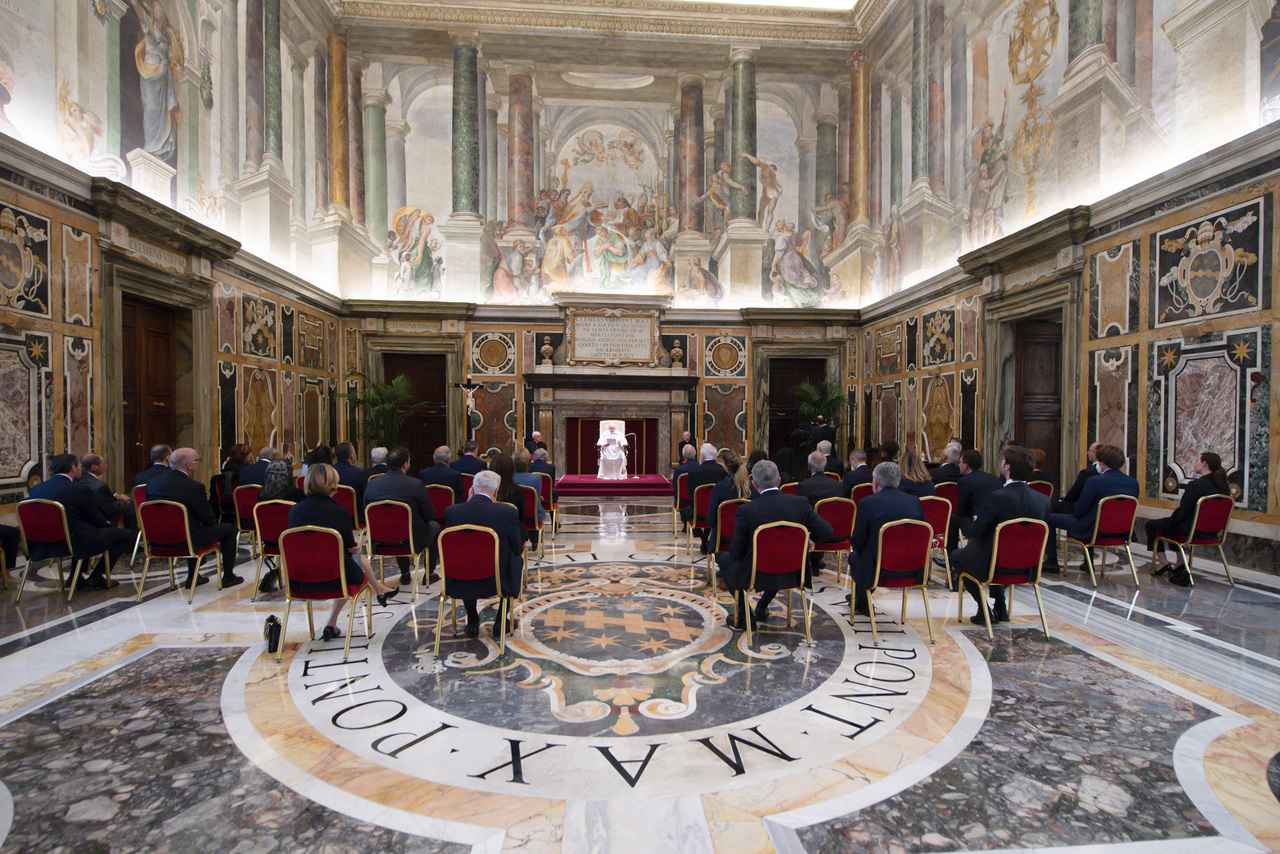
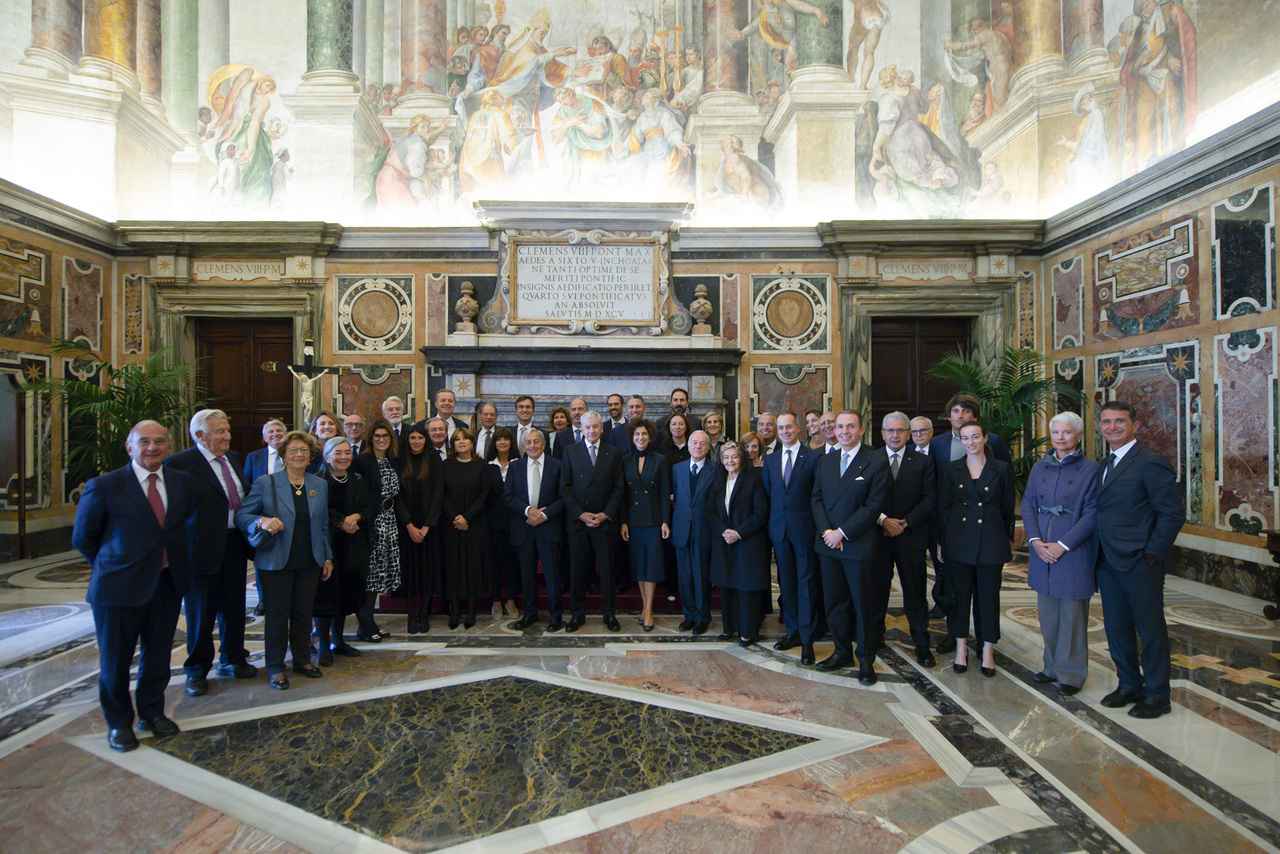
Foto © Vatican Media

